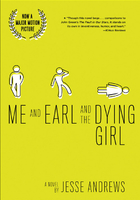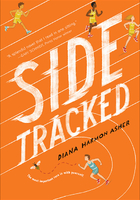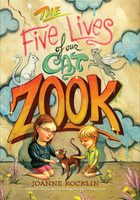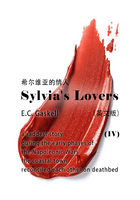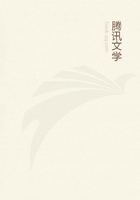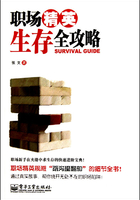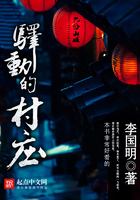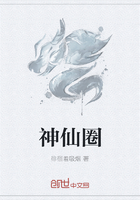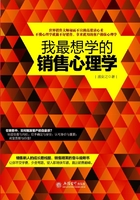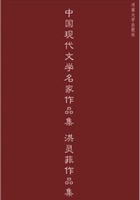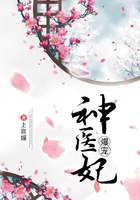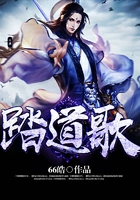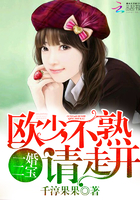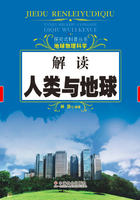Patricia Bath, MD, attended Hunter College before receiving her medical degree from Howard University College of Medicine. As a fellow at Columbia University she developed her interest in ophthalmology and later pioneered the worldwide discipline of "community ophthalmology," a volunteer-based program to bring necessary eye care to underserved populations. Dr. Bath cofounded the American Institute for the Prevention of Blindness and holds four patents in the United States.
My father was a strict disciplinarian and was very focused on education. I probably would have wanted to do well in school and go on to college anyway, but it was a requirement in our household. I look back on that as a good thing, as something that today's parents should have for their children. Children need to be mentored more and given more guideposts. My mother was the heart of our family and the emotional anchor. She was extremely kindhearted and loving, and my brother and I worshipped her. She was younger than my father and really ran the household because he was a merchant seaman and away a lot for work. My father was from Trinidad, in the West Indies, and was a pupil of Professor Eric Williams, who later became the first prime minister of Trinidad and Tobago. My father was an exemplary student, and although the Trinidadian education system only went through secondary school at that time, he received what was the equivalent of a college education. He fostered my interest in math, science, and engineering, because those were his favorite subjects.
My father was a leader and a mediator in our Harlem community. Our neighbors in the apartment building in which we lived, on Seventh Avenue and 122nd Street, looked to him to advocate for hot water and heat and better maintenance of our building. He shouldered that responsibility, negotiating with our landlord even though he was away for months at a time. Prior to his career in the U.S. Merchant Marine, he'd aspired to be a motorman, but he was not allowed the opportunity because of his race. I have news clippings of a report that he scored 100 percent on the Interborough Rapid Transit subway motorman exam but was denied the job. He eventually led other minority subway workers to form a union, and the NAACP handled his case, which he won, becoming the first black motorman for the IRT.
My interest in becoming a physician started when I was four or five and doing pretend play. I would always grab the stethoscope. When I was older, I read about Dr. Albert Schweitzer in the newspaper. I was inspired by this amazing man who left Switzerland to go to the Congo and take care of lepers in the jungle. I was moved by his example and realized I wanted to become a doctor and help humanity. I had a lot of encouragement, not only from my family but also from my community in Harlem, which was very vibrant. My father's best friend, Dr. Cecil Marquez, was among my role models. A family physician and fellow immigrant from Trinidad, he delivered both my brother and me. His office was around the corner, and he made house calls. When he visited, he and my dad would share a drink and talk about island things, such as Carnival. There was not a social barrier, even though he was a physician and my father was a motorman. Back then, there was more interaction between the classes than there is today.
By high school, I was on track to become a physician. My chemistry teacher, Dr. Leibowitz, saw a spark and felt I had something great to offer. He encouraged me to apply for a National Science Foundation Fellowship and guided me through the application process. When I was awarded a fellowship, my photo appeared on the front page of the New York Times. As an NSF fellow, I got to do research at Harlem Hospital and take classes at Albert Einstein College of Medicine. It was a fantastic experience and one that really solidified not only my interest in science but also the feeling that I could achieve my goal of becoming a physician. As I look back, I realize self-doubt was never in my consciousness. I was too busy trying to achieve to realize that in ten years what I'd accomplished would be considered a great thing. I was in the moment and simply enjoying what I was doing. It wasn't a sacrifice to study hard; I loved it.
After high school, I went to Hunter College, which offered me a scholarship. When the scholarship committee asked me how much financial assistance I needed, I said that I didn't know but that I would ask my parents. My parents told me they could afford both the tuition and my books, so I went back to the committee and reported that I didn't need anything extra. I look back upon that with today's glasses, which are not rose-colored, and I realize that many people back then must have wondered, "Why didn't you at least ask for something so you'd have money for clothes?" But that just wasn't part of my ethos. In my family, you worked hard and appreciated when you had enough. You wore clothes that were clean and honestly obtained, and they didn't have to be stylish. The whole idea of having wealth just to have wealth was not a part of the Bath family ethos. I attribute that way of thinking to my parents, who were happy and loving and felt good about themselves as they were.
I had a wonderful undergraduate experience at Hunter. Along with three friends, I founded the college's first science newspaper, which was called the Catalyst. I was the editor. I made a lot of African American friends through my sorority, Alpha Kappa Alpha. Sorority life was great because it provided a social network as exciting as today's Facebook. After pledging, I was nominated for a leadership position. My sorority sisters told me, "Pat, you need to run for national office." They campaigned for me at the Boule, our biennial celebration. The next thing I knew, I'd been elected Second Supreme Anti-Basileus, which meant I was on the board of directors of the sorority and held the highest national office for the undergraduates in Alpha Kappa Alpha. As Second Supreme Anti-Basileus, I was given the honor of introducing Dr. Martin Luther King, Jr., who was the keynote speaker at the next year's Boule. I was honored to meet him in person and to be able to chat with him privately for a little while. It was the sixties, and there were all kinds of turmoil and politics in terms of who should be the spokesperson for black people. On the one extreme, there was Malcolm X; on the other, there was Martin Luther King, Jr. As an aspiring physician, I was not interested in politics. I was too busy with matters of science and trying to get accepted into medical school. Politically, I was undecided, but after hearing Dr. King speak, I became a disciple. I was struck by his charisma and spirit. As he spoke, one could not help but be captivated by the power, logic, and elegance of his rhetoric. My entire being resonated like a bass drum with the righteous thunder of his words.
I was quite happy to get into medical school at Howard University, where for the first time I had science professors who looked like me. I finished my MD in 1968 and returned to New York to do an internship at Harlem Hospital. I was part of the first wave of interns from Howard University and fellows from Columbia University to roll up their sleeves and give something to the Harlem community. We were an amazing group, about 50 percent African American and 50 percent white. We were also an experiment. It was the sixties, the era of the Vietnam War, the Beatles, rock and roll, and the promise of utopia. Racial justice was no longer just a dream; it was almost a reality. The powers that be at Columbia's medical school had made a decision to send their best and brightest graduates to Harlem Hospital — at least the ones who were willing to go. I went there primarily because I wanted to fulfill a part of my dream, which was to serve the community in which I was raised.
After completing my internship, I did a fellowship in ophthalmology at Columbia, where I first noticed the health care disparities between the African American and white patient populations. I could just scan the waiting room at the Harlem eye clinic and see that more than half the patients had obvious visual impairment or blindness, which was not the case at the Columbia eye clinic. This observation spurred me to do a retrospective epidemiology study, using data from the National Institutes of Health and the National Eye Institute, which corroborated my observations. This study, published in 1978, produced two important findings: First, blindness was twice as prevalent among African Americans as it was among whites, and second, eight times as many African Americans were blinded by glaucoma in comparison to whites. Part of the explanation for this finding is access to ophthalmologic care, but I suspect there may also be genetic or hereditary aspects that have yet to be found. Sadly, the National Eye Institute has not provided the funding to answer this question, and other organizations, including mine, don't have funds to address the problem.
As I look back on discrimination that I've experienced in my career, I have concluded that sex was more of a factor than race. For example, when I objected to having my office at UCLA in the basement, the response was that they didn't know where to put me because I was the first woman. I wasn't the first African American on the faculty. It didn't seem appropriate to the department — and I'm imposing my thoughts on what might have been their thinking — to put me in an office with all the guys. When the situation was ultimately resolved, I was assigned an office with three women grant writers, but at least I wasn't in the basement. I recently had a chat with my former director, Bradley Straatsma (who has been very supportive at critical moments in my career), and we were laughing about the past. I said, "You know, Brad, there was architectural sexism." He said, "Why?" And I said, "We women surgeons had to change in the nurses' dressing room." Back then, they didn't have a separate dressing room for female doctors, because there were so few of them. Now I can look back upon these things and chuckle. You have to keep your eyes on the prize and not get distracted by the small stuff. You have to stay focused on your goal and not waste time and energy on things unrelated to your goal. That takes a sense of self. It takes being anchored, being confident, and having a strong support system. My support system has been family: the people, our values, and our ancestral legacy.
From the start, my goal has been clear: I've strived for excellence with each and every patient and to achieve the best possible results. To do this has sometimes meant thinking about things a little bit differently or trying to accelerate beyond existing technology. For example, imagine trying to do something as delicate as eye surgery with a cumbersome tool. I imagined a fine, delicate pen instrument that I could use to very precisely etch the exact portion of the cataract that I wanted to remove. I visualized and conceived of an improved device above and beyond what was then available, and in 1981, I invented the Laserphaco Probe, which uses a laser to vaporize cataracts via a tiny insertion into a patient's eye. After the cataract is removed, the vision can be restored by the insertion of a new lens.
One of my greatest moments as an ophthalmologist was in Tunisia, where a woman who'd been blind in both eyes for thirty years regained her vision after I performed surgery on her. It felt like a miracle. The operation was complex — an artificial corneal transplant (called keratoprosthesis) that even if done perfectly can fail. I could not predict the results, because the patient's cornea was so scarred that we could not see the retina. Furthermore, she had no medical records, so we had no idea of her history. I replaced her damaged cornea, and the day after the surgery, we took off her eye patch. First she gasped, and then we all gasped. When we saw that she could see, we brought her son to her, which was such a touching moment to witness. After all that, we got busy and measured her visual acuity with an eye chart. Postsurgery, she was able to read letters on the 20/20 equivalent line, indicating she had 20/20 vision. I experienced quiet ecstasy. This is why you become an ophthalmologist, a surgeon, a servant of humanity. This is why you sacrifice and tirelessly strive to achieve perfection.
I performed this surgery as part of a team of three U.S. experts, each of whom had donated a week of time to the visually disabled in Tunisia. We were working with a group called Orbis, in conjunction with my own organization, the American Institute for the Prevention of Blindness, which I cofounded in 1976. The AIPB was established because of the disproportionate numbers of blind people in third-world countries, where people don't have as much access to eye care. After working in rural parts of Nigeria, I developed "community ophthalmology," in which general healthcare workers are trained to do ophthalmologic triage in order to maximize the impact of the few available physicians. When I returned to the United States, I talked to colleagues, one of whom was a Biafran pediatrician who'd been part of the relief effort in the Nigerian-Biafran War. He was a public health expert, and he and I, along with two other doctors, formed the AIPB to help the blind all over the world. During the early years, we interacted with the World Health Organization in hopes of at least eradicating preventable blindness, such as the kind due to lack of vitamin A. For example, in Sudan, children who did not die of famine may become blind from lack of vitamin A. We were in existence and operating during the crisis in Sudan, but our efforts were a mere drop in the bucket. There is still a lot of work that needs to be done.
Since 2005 the AIPB has initiated a program that donates technology to blind children in Africa. These poor children need all the help they can get to achieve their potential. In February, the AIPB sent ten voice-activated computers to a missionary school called St. Oda near Kisumu in Kenya. In a thank-you letter, the school's headmaster told me that now their school was the first for the blind in the country to have "talking computers." Access to these computers and other assisted technology should be a right. Health care should be free. I believe that as a human being, you are entitled to health care. We have a motto: "Eyesight is a basic human right." Our Constitution states that everyone has the right to life, liberty, and the pursuit of happiness, which I believe includes health, because how can you have a right to life if you don't have access to vaccinations, prenatal care, a kidney transplant, cancer medications, or AIDS medications? It's tragic that health care has become so politicized.
I constantly wonder why all the other nonprofit organizations that have been in existence, and working in Africa for decades, haven't solved the most basic problems I discovered. However, I'm encouraged that there is a new perspective on serving humanity, exemplified by people such as Bill Gates and Warren Buffett. There's a big message in the fact that they've chosen to form their own organizations as opposed to just giving to existing ones. Their conclusions and their observations are mine as well: There's so much that needs to be done. We need new players, and we need new thinking. There needs to be a commitment to utilize the resources and assets that are available and to deliver help to the populations that really need it. I think the problems are fixable. I truly envision a cure for blindness. I hope my legacy in all of this is that I was a tireless and passionate advocate for the blind and that one day the blind will see.

